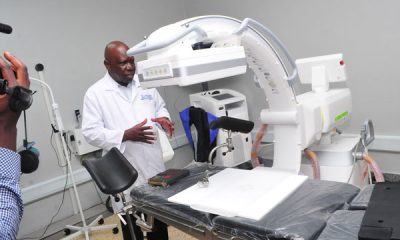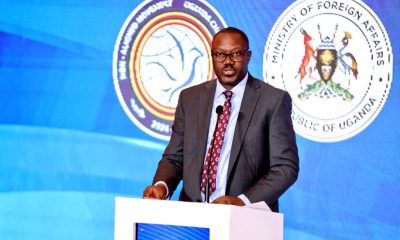Uganda has tabled the Human Assisted Reproductive Technology Bill, 2023, aimed at regulating the rapidly expanding field of assisted reproduction within the country.
Spearheaded by Honorable Sarah Opendi, the bill seeks to provide comprehensive legal frameworks to protect individuals seeking assisted reproductive services, as well as the providers of these services and the children born through such technologies.
The absence of prior legislation addressing assisted reproductive technology in Uganda prompted the urgent need for this bill. Honorable Opendi emphasized that Uganda could potentially become a benchmark for other countries, especially in Africa, if this bill is passed into law.
“We have consulted all the stakeholders widely and to our surprise, many African countries that actually started these services 30years ago don’t even have any legislation.”
Notably, many African nations that have offered these services for decades lack adequate legal frameworks.
Key provisions of the bill include;
- Regulation of human assisted reproductive technology: The bill aims to regulate various aspects of assisted reproductive technology, including the establishment of fertility centers and the storage of gametes (sperm and eggs) and embryos.
- Designation of fertility centers: Health units can be designated as fertility centers, subject to approval by the Medical and Dental Practitioners Council. These centers will offer services related to assisted reproduction and maintain standards set by the council.
- Rights and duties: The bill outlines the rights and duties of individuals involved in assisted reproductive technology, including donors, recipients, and medical practitioners. It emphasizes informed consent, confidentiality, and the right to withdraw consent.
- Protection of children born through assisted reproduction: The bill seeks to safeguard the rights of children born through assisted reproduction by ensuring their parentage is legally recognized and providing for their welfare.
- Surrogacy regulation: Surrogacy is proposed to be limited to individuals facing fertility or health challenges and those aged above 18 years. Strict penalties are outlined for medical practitioners who violate these regulations, including hefty fines and jail terms.
The bill also establishes the Medical and Dental Practitioners Council as the regulatory body responsible for administering the legislation. It mandates fertility centers to maintain detailed registers and report annually on various aspects of assisted reproduction.
Moreover, the legislation prohibits certain practices, such as the use of genetic material not of human origin and the advertising or arrangement of surrogacy, under strict penalties.
Once enacted, the Human Assisted Reproductive Technology Act, 2023, is poised to bring much-needed regulation and oversight to the field of assisted reproduction in Uganda, ensuring the protection of individuals’ rights and the welfare of children born through these technologies.
















